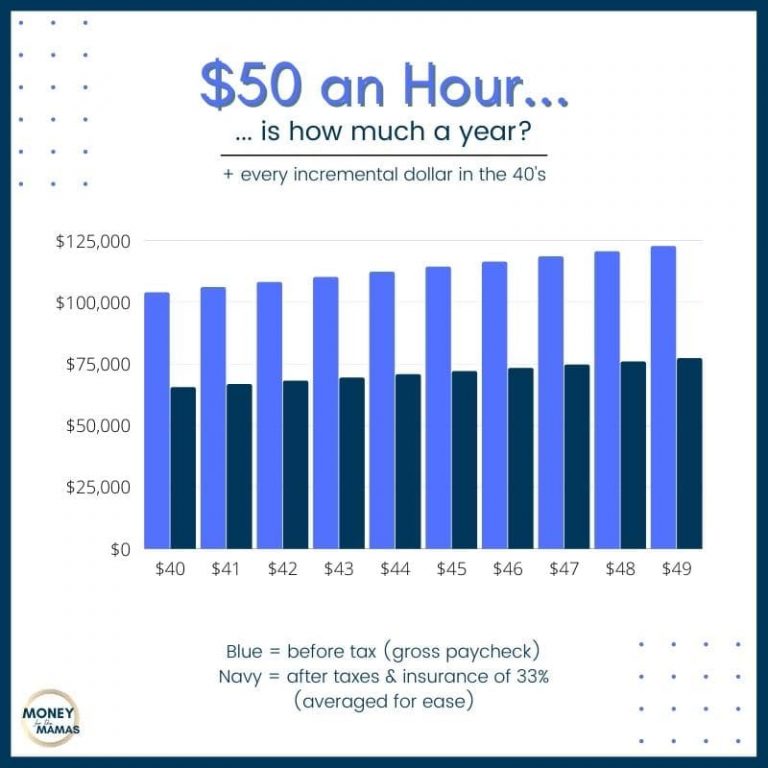Understanding the Value of Your Time
When it comes to determining a fair hourly wage, understanding the value of your time is crucial. Knowing your worth can help you negotiate better pay and benefits, and ultimately, achieve a higher level of financial security. But what does it mean to understand the value of your time, and how can you apply this knowledge to your career?
One way to think about the value of your time is to consider the opportunity cost of your work. In other words, what else could you be doing with your time if you weren’t working? This could include pursuing other career opportunities, spending time with loved ones, or simply enjoying hobbies and interests. By considering the opportunity cost of your work, you can begin to understand the true value of your time and make more informed decisions about your career.
Another way to think about the value of your time is to consider the skills and expertise you bring to the table. If you have specialized skills or experience, you may be able to command a higher hourly wage. This is because your skills and expertise have value to employers, and they are willing to pay a premium for them. By understanding the value of your skills and expertise, you can negotiate a higher hourly wage and achieve a better work-life balance.
So, is 50 an hour good? It depends on the value of your time and the skills and expertise you bring to the table. If you have specialized skills or experience, 50 an hour may be a fair wage. However, if you are just starting out in your career or don’t have specialized skills, you may need to consider other factors when determining your hourly wage.
Ultimately, understanding the value of your time is key to determining a fair hourly wage. By considering the opportunity cost of your work and the skills and expertise you bring to the table, you can negotiate a higher hourly wage and achieve a better work-life balance. Whether 50 an hour is good or not, it’s up to you to decide what you’re worth and negotiate accordingly.
How to Determine a Fair Hourly Rate for Your Skills
Determining a fair hourly rate for your skills and experience requires research and consideration of several factors. Industry standards, location, and level of expertise are just a few of the key elements to consider when determining your hourly rate.
One way to start is by researching industry standards for your profession or skillset. Look at data from reputable sources such as the Bureau of Labor Statistics, Glassdoor, or Payscale to get an idea of the average hourly rate for someone with your skills and experience. This will give you a baseline to work from and help you determine if $50 an hour is a reasonable expectation.
Location is also an important factor to consider when determining your hourly rate. Cities with a high cost of living, such as New York or San Francisco, may require a higher hourly rate to maintain a similar standard of living. On the other hand, cities with a lower cost of living may allow for a lower hourly rate.
Level of expertise is also a critical factor in determining your hourly rate. If you have specialized skills or experience, you may be able to command a higher hourly rate. This is because your skills and expertise have value to employers, and they are willing to pay a premium for them.
Another factor to consider is the level of demand for your skills. If you have skills that are in high demand, you may be able to negotiate a higher hourly rate. This is because employers are willing to pay a premium for skills that are scarce or in high demand.
Finally, consider your own goals and financial situation when determining your hourly rate. If you are looking to earn a certain income or achieve a certain lifestyle, you may need to adjust your hourly rate accordingly.
By considering these factors, you can determine a fair hourly rate for your skills and experience. Whether $50 an hour is a good wage for you will depend on your individual circumstances and goals. However, by doing your research and considering your options, you can make an informed decision about your hourly rate and negotiate a fair wage.
The Pros and Cons of Earning $50 an Hour
Earning $50 an hour can have both positive and negative effects on one’s life and career. On the one hand, a higher hourly wage can provide increased financial security and flexibility. With a higher income, individuals can afford to pay off debt, save for the future, and enjoy a better quality of life.
Additionally, earning $50 an hour can also provide a sense of pride and accomplishment. Knowing that one’s skills and expertise are valued and compensated at a high level can boost confidence and motivation. This, in turn, can lead to increased productivity and job satisfaction.
On the other hand, earning $50 an hour can also have some drawbacks. For example, a higher income can lead to increased taxes, which can reduce the overall take-home pay. Additionally, a higher hourly wage can also lead to increased pressure to perform, as employers may expect more from high-paid employees.
Furthermore, earning $50 an hour can also create unrealistic expectations and a sense of entitlement. If individuals become too comfortable with their high income, they may become complacent and less motivated to continue learning and growing. This can lead to stagnation and a lack of fulfillment in one’s career.
So, is 50 an hour good? It depends on the individual’s circumstances and priorities. While a higher hourly wage can provide many benefits, it is essential to consider the potential drawbacks and ensure that one’s expectations and motivations are aligned with their values and goals.
Ultimately, whether $50 an hour is a good wage depends on the individual’s definition of success and fulfillment. If earning a high income is a key aspect of one’s goals and values, then $50 an hour may be a good wage. However, if other factors such as work-life balance, job satisfaction, and personal growth are more important, then a lower hourly wage may be more desirable.
Comparing $50 an Hour to the National Average
The national average hourly wage in the United States varies depending on the industry, profession, and location. According to data from the Bureau of Labor Statistics, the national average hourly wage for all occupations was $25.72 in May 2020.
In comparison, $50 an hour is significantly higher than the national average. In fact, it is more than double the national average. This suggests that $50 an hour is a relatively high wage, and it may be considered a good wage for certain industries and professions.
However, it’s essential to note that wages can vary significantly depending on the industry and profession. For example, workers in the tech industry, such as software developers and data scientists, may earn significantly higher wages than workers in other industries.
Additionally, wages can also vary depending on the location. Cities with a high cost of living, such as New York or San Francisco, may have higher wages to compensate for the increased cost of living. In contrast, cities with a lower cost of living may have lower wages.
To put $50 an hour into perspective, here are some average hourly wages for different industries and professions:
– Software developers: $45-$70 per hour
– Data scientists: $50-$80 per hour
– Registered nurses: $35-$55 per hour
– Electricians: $25-$40 per hour
– Plumbers: $20-$35 per hour
As you can see, $50 an hour is a relatively high wage, but it’s not uncommon for certain industries and professions. Whether $50 an hour is a good wage depends on the individual’s circumstances and priorities.
Industries Where $50 an Hour is a Realistic Expectation
While $50 an hour may seem like a high wage to some, it is a realistic expectation in certain industries and professions. Here are some examples of jobs that typically pay this rate:
– Consulting: Management consultants, IT consultants, and strategy consultants often earn hourly rates of $50 or more.
– Freelancing: Freelance writers, designers, and developers who have a strong portfolio and high-demand skills can earn hourly rates of $50 or more.
– Skilled Trades: Electricians, plumbers, and HVAC technicians who have specialized skills and experience can earn hourly rates of $50 or more.
– Healthcare: Certain healthcare professionals, such as nurse practitioners and physician assistants, can earn hourly rates of $50 or more.
– Technology: Software developers, data scientists, and IT project managers who have high-demand skills and experience can earn hourly rates of $50 or more.
These industries and professions often require specialized skills and experience, and employers are willing to pay a premium for workers who can deliver high-quality results.
In addition to these industries, there are also certain job roles that may pay $50 an hour or more. For example:
– Project managers: Experienced project managers who have a strong track record of delivering successful projects can earn hourly rates of $50 or more.
– Sales professionals: Sales professionals who have a strong track record of meeting or exceeding sales targets can earn hourly rates of $50 or more.
– Marketing professionals: Marketing professionals who have specialized skills and experience in areas such as digital marketing or social media can earn hourly rates of $50 or more.
Overall, while $50 an hour may not be a realistic expectation for every job or industry, it is a realistic expectation for certain industries and professions that require specialized skills and experience.
How to Negotiate a Higher Hourly Rate
Negotiating a higher hourly rate requires preparation, confidence, and a solid understanding of your worth. Here are some tips to help you negotiate a higher hourly rate:
Research industry standards: Knowing the average hourly rate for your industry and profession is crucial in determining a fair rate. Use online resources such as Glassdoor, Payscale, or the Bureau of Labor Statistics to research industry standards.
Highlight your skills and experience: Make a list of your skills, qualifications, and experience. Be prepared to explain how your skills and experience align with the job requirements and how they will benefit the employer.
Make a strong case for your worth: Prepare a solid case for why you deserve a higher hourly rate. Focus on your achievements, skills, and experience, and explain how they will benefit the employer.
Be confident and assertive: Negotiating a higher hourly rate requires confidence and assertiveness. Be prepared to make a strong case for your worth and to negotiate the rate you deserve.
Be flexible: Be open to negotiation and flexible with your rate. Consider alternative compensation options, such as benefits or bonuses, if the employer is unable to meet your desired hourly rate.
Use data to support your request: Use data to support your request for a higher hourly rate. Provide examples of industry standards, your skills and experience, and the value you will bring to the employer.
Be prepared to walk away: If the employer is unwilling to meet your desired hourly rate, be prepared to walk away. It’s better to wait for the right opportunity than to accept a rate that is below your worth.
Remember, negotiating a higher hourly rate is a normal part of the hiring process. Employers expect it, and it’s a chance for you to demonstrate your worth and value. So, be confident, prepared, and assertive, and you’ll be more likely to get the rate you deserve.
Maximizing Your Earning Potential
Maximizing your earning potential requires a combination of skills, experience, and strategy. Here are some tips to help you maximize your earning potential:
Develop in-demand skills: Identify the skills that are in high demand in your industry and develop them. This will make you more valuable to employers and increase your earning potential.
Take on additional responsibilities: Taking on additional responsibilities can demonstrate your capabilities and increase your earning potential. Consider taking on a leadership role or volunteering for special projects.
Pursue side hustles or freelance work: Pursuing side hustles or freelance work can provide additional income and help you develop new skills. Consider offering your skills on freelance platforms or starting a side business.
Network and build relationships: Building relationships with people in your industry can provide opportunities and increase your earning potential. Attend industry events, join professional organizations, and connect with people on LinkedIn.
Stay up-to-date with industry trends: Staying up-to-date with industry trends can help you stay ahead of the competition and increase your earning potential. Consider attending conferences, reading industry publications, and following industry leaders on social media.
Consider certification or advanced education: Certification or advanced education can demonstrate your expertise and increase your earning potential. Consider pursuing a certification or advanced degree in your field.
Be proactive: Being proactive and taking initiative can increase your earning potential. Consider taking on new challenges, volunteering for special projects, and seeking out new opportunities.
Remember, maximizing your earning potential requires a combination of skills, experience, and strategy. By developing in-demand skills, taking on additional responsibilities, and pursuing side hustles or freelance work, you can increase your earning potential and achieve your financial goals.
Conclusion: Is $50 an Hour a Good Wage?
In conclusion, whether $50 an hour is a good wage depends on various factors, including industry standards, location, level of expertise, and personal financial goals. While $50 an hour may be a high wage for some industries and professions, it may be a reasonable expectation for others.
It’s essential to remember that your worth is not solely determined by your hourly wage. Other benefits, such as health insurance, retirement plans, and paid time off, can also impact your overall compensation.
When considering whether $50 an hour is a good wage, it’s crucial to evaluate your individual circumstances and priorities. If you’re unsure about your worth or feel underpaid, it may be time to negotiate a higher hourly rate or explore new job opportunities.
Ultimately, knowing your worth and negotiating a fair hourly rate can have a significant impact on your financial security and overall well-being. By understanding the value of your time and skills, you can make informed decisions about your career and finances.
So, is 50 an hour good? It depends on your individual circumstances and priorities. However, by considering the factors discussed in this article, you can make an informed decision about your worth and negotiate a fair hourly rate.







